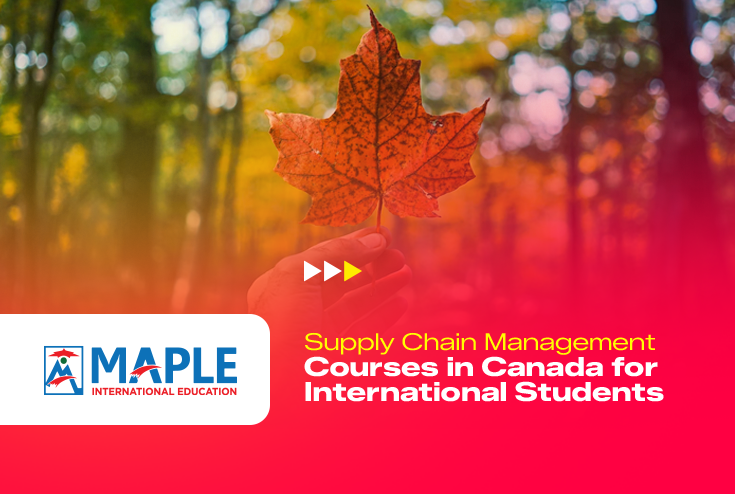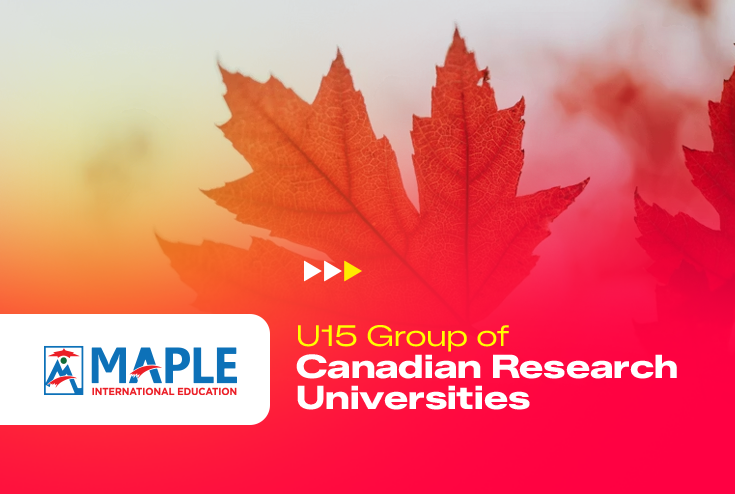
Australian Student Visa Interview Questions and Answers
Securing an Australian student visa is a crucial step for Nepali students planning to study in Australia. While the application process is mostly documentation-based, in certain cases, the Australian embassy may interview to assess your eligibility and genuine intention to study (GSR - Genuine Student Requirement criteria). Preparing for this interview can significantly increase your chances of visa approval. This guide provides essential Australian student visa interview questions and answers, strategies to boost your confidence, and tips to present yourself as a genuine student.
Table of Contents
Is an Interview Compulsory for the Australian Student Visa?
Key Australian Student Visa Interview Questions and Answers
Strategies for Success in an Australian Student Visa Interview
Key Takeaways
Conclusion
FAQs - Australian Student Visa Interview Questions & Answers
Is an Interview Compulsory for the Australian Student Visa?
Many Nepali students often wonder whether attending an interview is mandatory for an Australian student visa. The short answer is no, it is not compulsory for all applicants. However, understanding when and why an interview may be required can help you prepare better and improve your chances of visa approval.
When Is an Interview Required?
The Australian Department of Home Affairs may call for a student visa interview in the following cases:Verification of Documents: If there are any inconsistencies or missing details in your application documents, the embassy may interview you to clarify.
Genuine Student Requirement (GSR) Assessment: The interview helps assess whether you genuinely intend to study in Australia temporarily and return to Nepal after your studies.
Financial Assessment: If there are doubts about your ability to fund your education and living expenses, the visa officer may ask questions about your financial background.
Course and University Clarification: To ensure that your chosen course and university align with your academic background and career goals, the officer may ask for additional details.
Security and Background Checks: Occasionally, interviews are used to verify identity, background, or travel history.
Key Points to Remember
Not all applicants are interviewed: Most student visa applications are processed based on documents alone. Only a small percentage of cases require an interview.
Interviews are typically short and focused: They usually last 10 to 20 minutes and concentrate on your course choice, financial stability, GS intent, and personal background.
Interviews are mostly online: Most of the student visa interviews of Nepalese applicants are conducted via phone by the Australian Embassy or via a secure online platform.
Preparation is crucial: Even if you are not called for an interview, being well-prepared will help you provide accurate information and reduce processing delays.
Key Australian Student Visa Interview Questions and Answers
One of the biggest concerns for applicants is the Australian student visa interview, especially when it comes to proving your Genuine Student (GS) status and your intention to study. While not all applicants are required to attend an interview, being prepared ensures you are confident, professional, and ready to address any questions the embassy may have.
Below is a comprehensive list of commonly asked interview questions, categorized for easy understanding. Each question comes with key points to remember and sample answers so you can prepare effectively.
Personal Background Questions
These questions aim to understand your background, personal circumstances, and motivations.
Q. Tell us about yourself.
Key Points: Highlight educational background, family, interests, and future goals.
Sample Answer:
"I am [Your Name] from [City], Nepal. I recently completed my [highest qualification] in [field]. I am passionate about [your field of interest] and aim to develop my skills further through international education. My family supports my study plans and understands the opportunities studying in Australia offers."
Q. Do you have relatives or friends in Australia?
Key Points: Be honest; mention ties but emphasize your study focus.
Sample Answer:
"Yes, I have [relation] living in [city]. However, I plan to live independently during my studies to fully immerse myself in the academic environment and Australian culture."
Q. What are your hobbies and interests?
Key Points: Show personal development and cultural awareness.
Sample Answer:
"I enjoy [reading, volunteering, sports, coding, etc.]. These activities help me develop discipline, teamwork, and critical thinking skills, which I can apply during my studies in Australia."
Immigration History Questions
These questions assess your travel history and compliance with visa conditions.
Q. Have you traveled abroad before?
Key Points: Mention previous trips and their purpose (if any).
Sample Answer:
"Yes, I have visited [country] for [tourism/study/work]. I returned as required and complied with all visa conditions, demonstrating my respect for international regulations."
Q. Have you ever been refused a visa?
Key Points: Be truthful and provide an explanation.
Sample Answer:
"No, I have not been refused a visa to any country before. All my applications have been approved in accordance with the respective country’s regulations."
Q. Do you intend to overstay in Australia?
Key Points: Highlight your GS compliance.
Sample Answer:
"No, my sole purpose is to study and return to Nepal upon completion. I understand the importance of complying with visa conditions."
Academic and Professional Background Questions
These questions focus on your educational qualifications and professional experience.
Q. Tell us about your previous education.
Key Points: Highlight achievements, grades, and relevance to chosen course.
Sample Answer:
"I completed my [degree/diploma] in [subject] from [institution]. I focused on [relevant topics], which inspired me to pursue [chosen course] in Australia for advanced learning."
Q. Do you have any work experience?
Key Points: Relate work to your course or future goals.
Sample Answer:
"Yes, I worked at [company/organization] as [position]. This experience helped me develop practical skills in [field], and I want to enhance them further through my studies in Australia."
Q. Why did you choose this field of study?
Key Points: Explain alignment with career goals and previous education.
Sample Answer:
"I chose [course name] because it builds on my previous education and equips me with skills essential for my career in [industry]. The curriculum focuses on both theoretical knowledge and practical application."
Course Plans and University-Related Questions
These assess your planning, research, and alignment with your chosen course and institution.
Q. Why did you choose this course?
Key Points: Focus on career relevance, skills, and unique aspects of the course.
Sample Answer:
"I chose [course name] because it offers advanced modules in [specific subjects] that are directly relevant to my career goals. It also provides practical projects and industry exposure."
Q. Why did you select this university?
Key Points: Highlight university rankings, faculty, research opportunities, and infrastructure.
Sample Answer:
"I selected [University Name] because of its excellent faculty, research facilities, and global recognition. The university’s internships and industry partnerships make it ideal for gaining hands-on experience."
Q. Have you explored other universities or courses? Why did you choose this one?
Key Points: Demonstrate that you've researched multiple options, explain why this university/course stands out, and ensure the choice aligns with your academic and career objectives.
Sample Answer:
"Yes, I considered other universities such as [University A] and [University B]. However, I found that [University Name] offers a more comprehensive curriculum in [your field], with specialized modules that are directly aligned with my career goals. So, I preferred this university/course over others."
Q. How did you decide the duration and intake of your course?
Key Points: Demonstrate planning and research.
Sample Answer:
"I chose the [intake month/year] intake to ensure I had adequate time to prepare financially and academically. The course duration aligns with my career plan to gain knowledge and return to Nepal with enhanced skills."
Q. Did you consider other countries?
Key Points: Explain why Australia is the best option.
Sample Answer:
"I considered other countries but chose Australia for its world-class education, practical approach, and multicultural environment that supports international students."
Financial Sponsorship and Living Arrangement Questions
These evaluate your ability to fund your education.
Q. How will you fund your studies in Australia?
Key Points: Be specific; show proof of finances.
Sample Answer:
"My education will be funded through personal savings, family support, and a student loan. I have submitted all required financial documents to demonstrate my ability to cover tuition and living expenses."
Q. Do you have scholarships or financial assistance?
Key Points: Mention awards or grants if applicable.
Sample Answer:
"Yes, I received a partial scholarship from [institution], which helps cover tuition fees. My family will support additional expenses."
Q. Can you explain your financial sources in detail?
Key Points:
Specify all sources: personal savings, family support, scholarships, and loans.
Show awareness of tuition fees, living costs, and contingencies.
Provide evidence if possible (bank statements, affidavits, scholarship letters).
Sample Answer:
"My education in Australia will be funded through a combination of personal savings, family support, and a student loan. My parents have saved funds specifically for my education, which are documented in bank statements I have submitted. Additionally, I have applied for [scholarship name], which will cover part of my tuition fees. I have carefully calculated the total cost of tuition, living expenses, and other necessities, and I am confident I have sufficient funds to cover all expenses during my stay."
Q. Have you arranged accommodation in Australia? If yes, where and how?
Key Points:
Specify the type of accommodation: university housing, homestay, or private rental.
Mention the location and proximity to your campus.
Show planning and readiness.
Sample Answer:
"Yes, I have arranged accommodation at [accommodation name], which is [university-managed housing/private rental/homestay] located close to [university name]. This location provides easy access to campus, public transport, and essential amenities. I have already confirmed my booking and have all the necessary documentation ready."
Q. What is your backup plan if you are unable to find accommodation?
Key Points:
Show preparedness and flexibility.
Mention alternative options like temporary housing, student hostels, or homestays.
Highlight problem-solving skills.
Sample Answer:
"If my initial accommodation plan does not work out, I have researched alternative options, such as temporary university hostels, homestays, or short-term private rentals near the campus. I am confident that these alternatives will ensure a safe and convenient living arrangement while I finalize my long-term accommodation."
Career Plans Questions
These aim to ensure you meet GS requirements and return to Nepal after studies.
Q. What are your career goals after completing this course?
Key Points: Link the career plan with the course and return to Nepal.
Sample Answer:
"After graduation, I plan to work in [industry] to gain experience and return to Nepal to contribute to [specific sector]. My Australian education will provide advanced skills and global exposure to achieve this goal."
Q. Why don’t you want to work in Australia after graduation?
Key Points: Focus on GS compliance.
Sample Answer:
"My primary intention is to gain knowledge and return to Nepal. I understand the visa is for study purposes, and I am committed to using my education to develop my career back home."
General Knowledge and Awareness Questions
These assess your awareness of Australia, student life, and culture.
Q. What do you know about student life in Australia?
Key Points: Show understanding of academic and social aspects.
Sample Answer:
"I know that Australia has a multicultural environment, excellent student support services, and opportunities for both academic and cultural engagement. I am prepared to adapt and focus on my studies while experiencing cultural diversity."
Q. What is the GS requirement?
Key Points: Demonstrate awareness of visa rules.
Sample Answer:
"GS stands for Genuine Student. It ensures that applicants intend to study temporarily in Australia and return home after completing their education. I meet this requirement and can demonstrate my genuine intent."
Q. How will studying in Australia benefit your career?
Key Points: Highlight global recognition, skills, and employability.
Sample Answer:
"Studying in Australia will equip me with practical skills, international exposure, and global recognition in my field. These advantages will allow me to contribute effectively to my profession in Nepal."
Strategies for Success in an Australian Student Visa Interview
Preparing for an Australian student visa interview can feel intimidating, but with proper planning and clear strategies, Nepali students can approach it with confidence. The interview is primarily designed to assess your Genuine Student (GS) status, financial readiness, academic and career intentions, and overall preparedness to study in Australia.
A successful interview is not about memorizing answers; it’s about presenting yourself authentically, demonstrating your intentions clearly, and proving that you are well-prepared both academically and financially. By following these strategies, you can ensure a smooth interview process and increase the likelihood of visa approval.
1. Understand the Genuine Student (GS) Requirement
The GS requirement is central to the interview. Visa officers want to confirm that your primary purpose is to study and that you plan to return to Nepal after completing your course.
Strategy: Prepare clear and honest explanations about your career plans, how your chosen course aligns with them, and why you intend to return home.
2. Know Your Course and University
Officers often ask why you chose your specific course and university. Be ready to explain your research.
Strategy: Highlight university rankings, program features, faculty expertise, and internship or practical opportunities. Compare with alternatives to show informed decision-making.
3. Prepare for Personal Background Questions
Officers may ask about your family, personal circumstances, or travel history.
Strategy: Provide honest, concise answers and emphasize support from family or sponsors for your education. Avoid over-explaining or unrelated details.
4. Financial Preparedness
Demonstrating that you can fund your education and living expenses is crucial.
Strategy: Prepare detailed documentation for all financial sources: personal savings, family contributions, scholarships, or education loans. Be ready to explain them.
5. Accommodation Planning
Officers may ask where you will live in Australia and your contingency plan.
Strategy: Arrange and confirm your accommodation before the interview. Also, research backup options like university hostels or short-term rentals.
6. Career Goals and Post-Study Intentions
Be ready to explain how your course relates to your career goals and your plans after graduation.
Strategy: Link your course to a professional path in Nepal, demonstrating that your studies in Australia are temporary and purposeful.
7. Document Familiarity
Officers may ask questions based on your submitted documents.
Strategy: Review all your documents: admission letters, transcripts, financial proof, and identity documents. Be ready to clarify or provide additional details if asked.
8. Practice and Mock Interviews
Practice makes you confident.
Strategy: Conduct mock interviews with a friend, mentor, or counselor. Focus on clear communication, concise answers, and maintaining composure.
9. Honesty and Consistency
The key to success is sincerity.
Strategy: Always answer truthfully and consistently. Fabricated stories or exaggerated claims can lead to visa refusal.
Key Takeaways
GS Compliance Is Critical: Always demonstrate your Genuine Student status - your clear intent to study in Australia temporarily and return to Nepal.
Be Well-Prepared: Research your course, university, living arrangements, and financial plans thoroughly. Confidence comes from preparation.
Document Readiness: Keep all academic, financial, and identity documents organized and accessible for verification.
Honesty and Clarity: Answer truthfully, concisely, and consistently. Avoid over-explaining or providing unnecessary details.
Practice Makes Perfect: Conduct mock interviews to rehearse common questions and improve communication skills.
Conclusion
Preparing for the Australian student visa interview may seem challenging, but it is manageable with structured preparation and confidence. By understanding the types of questions asked: personal background, academic history, financial readiness, course and university choice, and career plans, you can approach the interview with clarity and authenticity. Remember, the interview is not meant to intimidate you; it is an opportunity to demonstrate your genuine intention to study and succeed in Australia.
Start your preparation today! Review your documents, research your chosen course and university, and practice answering common interview questions. Being proactive will not only boost your confidence but also significantly increase your chances of securing your Australian student visa. Take the first step toward your international education journey and set yourself up for success!
Contact Maple International Education now for personalized support for visa interview preparation.
FAQs - Australian Student Visa Interview Questions & Answers
1. Is there any interview for an Australian student visa?
Yes. While not every applicant is interviewed, many students—especially from high-application countries like Nepal—may be asked to attend a Genuine Student (GS) interview. The purpose is to confirm your study intentions, financial capacity, and post-study plans.
2. How to pass an Australian visa interview?
To succeed, you should:
Be honest and consistent in your answers.
Demonstrate clear knowledge of your course, university, and career plans.
Show proof of financial stability and accommodation arrangements.
Maintain professional body language and confidence.
Preparation is key—review your documents and practice common questions in advance.
3. How can I pass my student visa interview?
Focus on three main areas:
Academic alignment – Explain how your course fits your career goals.
Financial readiness – Provide detailed, verifiable sources of funding.
GS compliance – Prove you intend to return to Nepal after completing your studies. Answer concisely, stay calm, and avoid unnecessary details.
4. How to answer genuine student questions in Australia?
When asked about being a “genuine student,” highlight:
Your academic history and achievements.
Why this course and university are the best fit for your goals.
Your career plans in Nepal after graduation.
Example:
"I chose this course because it aligns with my previous academic background in IT and supports my long-term goal of working in Nepal’s growing technology sector."
5. How to answer why you chose Australia?
Your answer should reflect research and personal motivation. Include points like:
World-class education system with globally recognized degrees.
Practical learning opportunities and industry exposure.
Safe and multicultural environment for international students.
Limited availability of similar courses in Nepal or other countries.
Example:
"I chose Australia because it offers a globally recognized qualification in [field], practical learning opportunities, and a diverse environment that will help me grow academically and personally. This course is not available with the same quality in Nepal, which makes Australia the best choice for me."
Also Read:
Scholarships in Australia for Nepalese Students
Best Cities in Australia for International Students
Most Affordable Australian Universities in 2025
Cost to Study in Australia from Nepal in 2025: A Guide




